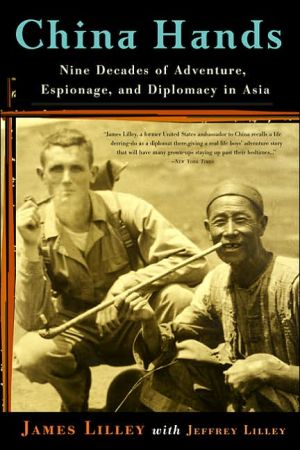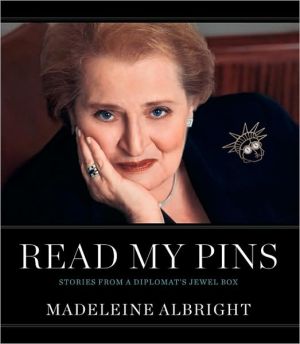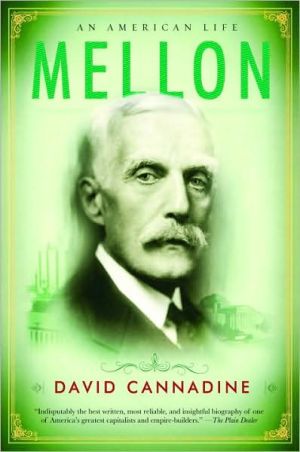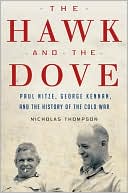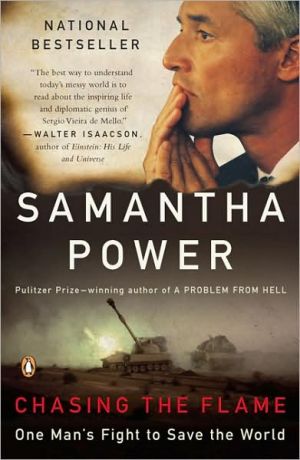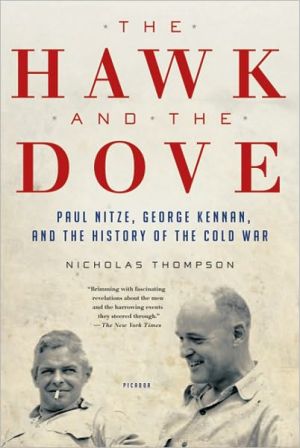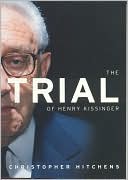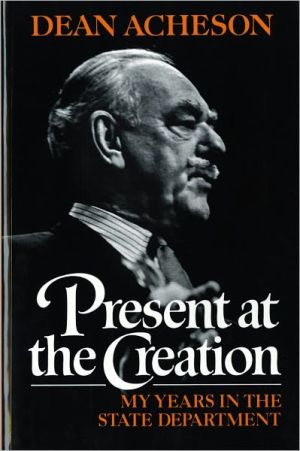China Hands: Nine Decades of Adventure, Espionage, and Diplomacy in Asia
James Lilley's life and family have been entwined with China's fate since his father moved to the country to work for Standard Oil in 1916. Lilley spent much of his childhood in China and after a Yale professor took him aside and suggested a career in intelligence, it became clear that he would spend his adult life returning to China again and again.\ Lilley served for twenty-five years in the CIA in Laos, Tokyo, Hong Kong, and Taiwan before moving to the State Department in the early 1980s...
Search in google:
One of America's most respected diplomats on a life spent serving in the Far East The Washington Post … there is more to China Hands than spying. Lilley was present at the creation of George H.W. Bush's special relationship with Deng Xiaoping in 1977. He offers new information on the internal U.S. government battle over the August 1982 communiqué with China that was supposed to limit U.S. arms sales to Taiwan and also sheds light on a secret Ronald Reagan memo for the file that immediately rendered the communiqué a dead letter. He also revisits Reagan's simultaneous "six assurances" to Taiwan that promised no pressure to negotiate with Beijing. He describes his role in preparing the way for controversial arms sales to Taiwan, particularly the Indigenous Defense Fighter and the F-16 aircraft. — Andrew J. Nathan
CHINA HANDS\ Nine Decades of Adventure, Espionage, and Diplomacy in Asia \ \ By James Lilley Jeffrey Lilley \ PublicAffairs\ Copyright © 2004 James Lilley and Jeffrey Lilley\ All right reserved.\ ISBN: 1-58648-136-3 \ \ \ Chapter One\ "WHERE THE DAISIES COVER THE COUNTRY LAND" \ My family's connection with China began in the shadow of the picturesque peaks that line the country's great waterway, the Yangtze River. There, in 1917, in the heartland of a country known by its people as the center of the world, my father was traveling upstream on a Chinese junk. Along the way he recorded the family's first images of life in the Middle Kingdom, a place that we would work in and around for the next nine decades.\ From his perch on the junk, my father admired the Yangtze's dramatic scenery and noted the exotic names of some of its gorges-ox liver, wild duck, and horse lungs. At the Wushan Gorge, "the great gloomy gorge of the river" as he called it, cliffs rose up over the Yangtze to heights of a thousand feet and channeled rapids that could break a boat into pieces. "Awe-inspiring in its massive ruggedness," my father wrote in his diary of the trip. During the journey upstream, a hundred laborers, trudging at times along narrow paths carved into the limestone rock, used ropes to haul the boat against the current. Later my father heard gunshots that signaled the start of a battle between armies of opposing warlords. Exotic scenery, perilous rapids, backbreaking labor, and brewing conflict-my father recorded it all.\ Frank Walder Lilley II had arrived in China a year earlier. After dropping out of Cornell University, he had gone to California to "seek his fortune." But destiny drew him farther afield. After reading in a local newspaper that the Standard Oil Company was looking for single men to go to China, he sent in an application. When he was accepted, he joined a growing corps of marketers, or "classmen" as they were called, for John D. Rockefeller's Standard Oil Company of New York, or SOCONY. The men were sent all over the world to sell oil and oil products. They were part of America's expanding economic empire.\ The commitment my father made to work for Standard Oil was excessive by today's standards. He agreed to learn Chinese, work without vacation, and stay unmarried for three years. But at 26, sporting a mustache and a piercing gaze, he was eager for adventure. And without a college degree, he was happy to have a steady job.\ SOCONY employees called their work "selling oil for the lamps of China," and it became an almost messianic mission to spread light around China and make profits for "the company." The sign of SOCONY was a flying red horse, and it came to be recognized around the country. In those days, in a phrase that conjured up thoughts of empire, it was said that Standard Oil's holdings in the world were so vast that the sun never went down over the business.\ That scenic ride up the Yangtze dropped my father off in Wanxian, a city in China's interior in eastern Sichuan Province. His job was to sell kerosene and other oil products to the Chinese multitudes. To do this, he established a network of Chinese sales agents to peddle oil products to the villages and towns in his district. Like his fellow SOCONY managers working in remote locations, my father had to learn quickly how to distinguish between locals he could do business with and those he should stay away from. On the trip up the Yangtze in 1917 he got a taste of what he was in for. "One of the coolies punched a hole in one of the tins and poured out 1/2 a tin of oil," my father wrote in his diary. "We discovered the theft when the oil was being put back on the junk and after much arguing made the no. 1 coolie pay $1 for the oil. A great deal of this goes on here and we wanted to teach the crowd a lesson."\ The business was time-consuming and demanded patience. Success in securing reliable and trustworthy Chinese agents depended largely upon how well the manager understood Chinese customs and ways of doing business. The American managers and their Chinese agents differed like night and day-both on the surface and in more substantive ways. The managers wore Western suits and fedoras. The agents wore skullcaps and dressed in Chinese collarless shirts and long gowns. History, language, and culture were completely different. China was thousands of years old. The United States of America was not halfway through its second century. The Chinese wrote in characters and spoke in rising and falling cadences, while Americans used an alphabet and conversed in a monotone.\ But there were much more subtle differences as well. If a manager was successful in dealing with the Chinese, he earned the Chinese moniker of a "keeper of the custom," meaning one who understood Chinese rites and practices, such as figuring out family ties, lining up allies, acting deferentially, and avoiding humiliation of others. This made him an "honorable adversary," a description that revealed a dislike and distrust of foreigners.\ * * *\ China was in a state of upheaval when my father arrived in 1916. Several years earlier, a bloodless revolution had toppled the country's last emperor, a six-year-old boy named Pu Yi. The breakdown of the imperial system was followed by the rise of a republican form of government in 1912, headed by a president and based on provincial assemblies and a national parliament. But real power rested with powerful military governors or regional warlords. The republican government collapsed several years later, and an era dominated by warlords ensued. Along the Yangtze, in a microcosm of what was happening throughout China, warlords vied for power, and robbers and ex-soldiers controlled passages of the river and preyed on traders. In fact, for periods of time in 1916, shipping companies stopped sending boats up parts of the Yangtze because lawless bands along the banks were shooting at anything that moved.\ My father's first respite from these challenges of work and turmoil came in late 1919 when he was allowed three and a half months of home leave. Three years of living alone in the backcountry of China had made his thinking clear on one thing: He needed a wife. And he had to work fast at finding one since the boat journeys across the Pacific would take up almost half of his allotted vacation time. Fortunately, during those years in the interior of China, he hadn't been just selling oil. He had also spent time selling the idea of himself its a husband to a schoolteacher he had met before leaving for China.\ Inez Bush came from Monroe, New York, an area of rolling farmland and lakes about forty miles northwest of New York City, where my father's family had moved from Canada in the early part of the century. While Inez had dated other people in my father's absence, when he returned and asked for her hand, Inez, beautiful but an old-maidish 25 years old, accepted. My father never did ask her father for permission. Since he came from a strict Catholic family and my mother's family was Protestant, both sets of parents were opposed to the union. My parents solved the problem by eloping. And by deciding then that formal religion would be minimized in their new family's life even though the strong Catholic strain would live on in Grandma Lilley.\ My oldest sibling, Frank Walder III, was born in 1920 in Wuhu, a port city on the Yangtze about two hundred miles inland from Shanghai. Following Frank's birth my homesick mother returned to the United States with her newborn son. But after several months of washing clothes, cooking meals, and doing chores at her parents' home in Monroe, she headed back to China, more appreciative of the house staff that came with the posting. My brother Jack was born two years after Frank on the next home leave in New York. Elinore, born in 1924 in Chefoo (present-day Yantai on the tip of the Shandong Peninsula), broke the line of boys. I, the last of the four, was born on January 15, 1928, in the German hospital in Tsingtao. By that time the family had already been living for two years in Tsingtao, a Yellow Sea port on the Shandong Peninsula where I was to live the first eight, very happy years of my life.\ * * *\ Tsingtao's history ties in directly with the era of foreign domination in China. Since the late eighteenth century, when England started to sell opium to China in return for teas, porcelain, silks, and other decorative goods, Japan and the European powers had taken advantage of China's fractured political system and weak military to carve up the country's cities into commercial sectors. For their companies, these stronger countries arranged trading privileges, and for their citizens, extraterritorial rights, which allowed foreigners to be judged by their own national laws for crimes committed on Chinese soil. America followed her European rivals. In 1844, Caleb Cushing, the personal envoy of President John Tyler, negotiated access to Chinese ports and similar extraterritorial rights for Americans.\ These kinds of privileges ultimately led to President William McKinley's Open Door policy in 1900. Ostensibly designed by the United States to protect China from being carved up, this declaration actually served to preserve the status quo of a subservient China open for trade on favorable terms to outside countries. Seeing the American declaration as an attempt to curtail their commercial involvement in China, foreign powers ,already in China for the most part ignored it and continued their business activities. Competition for a better foothold in China ultimately led China's two most powerful neighbors, Japan and Russia, to fight the Russo-Japanese War in 1904-1905. Japan's victory in that war fueled its push into China in the early twentieth century.\ Germany's conquest of Tsingtao in 1897 is a good illustration of the imperialist practices of the day. The pretext for the German takeover was the murder of two German missionaries by Chinese bandits in a town on the Shandong Peninsula. Germany dispatched three cruisers to Tsingtao, which had one of the finest natural harbors on the coast of China. After Chinese soldiers evacuated Tsingtao upon orders of the German emperor, the German military occupied the town.\ Bargaining from an inferior position, China concluded a ninety-nine-year lease of the bay area to Germany. Thus began the Germanization of the village of Tsingtao. German engineers laid out roads lined with linden trees and connected to sewers, constructed bunkers on the coastline, and built sturdy brick houses. The town's most distinctive landmark became the Lutheran Church built on a high point overlooking the harbor. To this day you can see the German houses on Tsingtao's hillside, with their fading yellow and red trim and overgrown gardens, standing solidly a century after they were built.\ Germany's remaking of Tsingtao came to a halt in World War I, but imperialist practices didn't. Japan, which opposed Germany in the war, saw an opportunity to extend its foothold in China past its control of Manchuria, which had been won from the Russians in the Russo-Japanese War. Together with a small force of British troops, Japan captured Tsingtao in 1914 and a year later wrangled from the weakened Chinese government complete control over the Shandong Peninsula.\ After the end of World War I, China hoped to regain the German concession of Shandong and rid itself of the yoke of extraterritoriality. But at the Paris Peace Conference in 1919, which was supposed to enshrine U.S. president Woodrow Wilson's favored principles of national self-determination and territorial integrity, the Chinese were told they had no claim on Tsingtao because the treaty they had signed with Japan in 1915 was binding. Protests against the unjust decision started on May 4 in Tianamnen Square in front of the Forbidden City palace complex in the center of Peking and spread across China, giving birth to the eponymous movement that was a landmark in the development of Chinese nationalism and that would be echoed in later events in China, including the student demonstrations in 1989.\ The May 4th movement had roots in the Boxer Rebellion almost two decades earlier. That rebellion was fueled by resentment toward the presence of foreigners in China-be it the Japanese military in the north, German missionaries in the west, or British and American businessmen in the ports. It wasn't called the era of the gunboat, oil can, and Bible for nothing. Heir to a tradition of martial arts and shamanism, the Boxer movement, I Ho Ch'uan in Chinese ("righteous, harmonious fists"), reached its peak when the Boxers occupied the capital city of Peking and Tientsin in the summer of 1900. The Boxers attacked Christians, both foreign and Chinese, and looted the legations in which foreigners lived. An international army soon came to the rescue of foreigners trapped in Peking and squashed the rebellion. In victory, the foreign powers solidified the status quo trading arrangements, and, with the Boxer Protocol of 190l, forced the Chinese government to pay indemnity for damages and acquiesce to a strengthened foreign military presence in the legations. A battalion of the U.S. 15th Infantry, which had been part of the international army, returned to China in 1911.\ The Chinese people stewed, but without a competent central government, China was powerless to change its fate. It was left to depend on other powers, mostly acting in their own self-interest, to address its grievances. In 1922, alarmed by Japan's growing presence in China, two of those powers-Britain and the United States-pressured Tokyo to cede control of Tsingtao back to China in accordance with provisions of the Washington Conference, which tried to settle outstanding territorial issues stemming from World War I.\ So by the time my family moved to Tsingtao in 1926, it had been under Chinese control for four years, but the presence of foreigners still shaped the city. Though there were no longer many Japanese troops in the city, Japan remained the dominant outside power in Tsingtao. Its businessmen made up the core of a 15,000-strong Japanese community. Other foreign communities were the British, Germans, Canadians, Russians, and, of course, Americans.\ The Russians were a curious lot. They were European-looking but didn't enjoy the same privileges of work, housing, and lifestyle of the other foreign communities. Many had been stranded in China after fleeing the Bolshevik Revolution of 1917 and were stateless. In the hierarchy of nationalities that characterized life in Tsingtao, the Russians were one step up from the Chinese. They were poorer than the other Westerners, lived more frugally, and had to scramble to make ends meet. Many worked service jobs for foreigners: operating the city's dry cleaners and cafés; working as musicians and hairdressers; and giving music, dance, and art lessons. The foreign community and even the Chinese generally looked down on the Russians for their marginal existence as stateless refugees.\ \ Continues...\ \ \ \ Excerpted from CHINA HANDS by James Lilley Jeffrey Lilley Copyright © 2004 by James Lilley and Jeffrey Lilley. Excerpted by permission.\ All rights reserved. No part of this excerpt may be reproduced or reprinted without permission in writing from the publisher.\ Excerpts are provided by Dial-A-Book Inc. solely for the personal use of visitors to this web site. \ \
Note to the ReaderixProloguexiPart IGrowing Up, 1916-19471"Where the Daisies Cover the Country Land"32Only a Memory243Americanization354An Anguished Cry47Part IIIntelligence Officer in Action, 1948-19685A Ready Recruit656A Covert Foot Soldier777On the Edge of Conflict978Running the Secret War1069Of Coups, Floods, and Failures119Part IIIChina Opens Up, 1969-198110Reading the Tea Leaves13511Breaking Down Walls15212Kissinger's Man in China16913Good Fortune19614Riding a Wave213Part IVDiplomat in Action, 1982-199115Righting the Balance22716The Golden Years24917Pushing for Change26418"Through the Blur of Our Tears"28219Stepping on a Volcano29720Small Victories335Epilogue373Acknowledgments383Notes385Bibliography402Index406
\ The New York TimesIn China Hands James Lilley, a former United States ambassador to China, recalls a life of derring-do as a diplomat there, giving a real-life boys' adventure story that will have many grown-ups staying up past their bedtimes.—Bruce Gilley\ \ \ \ \ The Washington Post… there is more to China Hands than spying. Lilley was present at the creation of George H.W. Bush's special relationship with Deng Xiaoping in 1977. He offers new information on the internal U.S. government battle over the August 1982 communiqué with China that was supposed to limit U.S. arms sales to Taiwan and also sheds light on a secret Ronald Reagan memo for the file that immediately rendered the communiqué a dead letter. He also revisits Reagan's simultaneous "six assurances" to Taiwan that promised no pressure to negotiate with Beijing. He describes his role in preparing the way for controversial arms sales to Taiwan, particularly the Indigenous Defense Fighter and the F-16 aircraft. — Andrew J. Nathan\ \ \ Publishers WeeklyThis important contribution to the crowded field of histories detailing Sino-U.S. relations in the 20th century is singular in its scope and perspective. James Lilley, who served in various posts all over East Asia, offers firsthand accounts of America's crude "gunboat, oil can, and Bible" diplomacy in Asia at the turn of the last century through the more nuanced approach at the end of the Cold War. Lilley's unique personal history distinguishes his version of events from similar efforts by journalists. Members of Lilley's family, since his father took work with Standard Oil's China office in 1916, have at different times been helpless witnesses, tortured participants and active U.S. patriots in Asia throughout what has arguably been the region's most tumultuous century since the Mongol invasion. Though written in a blunt, unadorned style befitting its author, a 20-year veteran of the CIA, this book exposes Lilley's ardent love for his family and his country. His devotion to the latter is apparent in his total lack of self-doubt in passages detailing illegal CIA operations in Laos and the war in Vietnam. His vivid and enlightening account of the Tiananmen Square massacre includes details that could be known only by him, as he was U.S. ambassador to China at the time. That chapter, which details the strafing of the American embassy by Chinese soldiers and the clandestine housing of dissident Fang Lizhi, is among several in which the book is aided by Lilley's high perch in government. Written with his son, a journalist, his candid account is a must-read for students of Asia and intelligence work. Copyright 2004 Reed Business Information.\ \ \ \ \ Foreign AffairsAmbassador James Lilley's memoir begins with his childhood in China, where his father served with Standard Oil. Lilley left China to attend Exeter and Yale, but upon graduation, he was recruited — along with nearly 100 Yale classmates — into the newly formed CIA for what would turn out to be a career spent mostly back in Asia. After clandestine service in Hong Kong, Tokyo, and Laos, Lilley became a member of the first official U.S. team posted in Beijing after President Richard Nixon's opening of relations with China. (Henry Kissinger negotiated the placement of intelligence officers in each mission so the White House would be able to bypass the State Department.) Shortly after returning to Washington to be the national intelligence officer on China, Lilley left the CIA to return to Asia as Director of the American Institute in Taiwan and, later, as ambassador to Seoul and then Beijing — the culmination of an extraordinary career. Lilley recounts the inside story of U.S. policymaking in a keen, clear-eyed manner. His insider's account of key policy decisions related to both Taipei and Beijing, as well as of personal relations among Washington elites, adds considerably to our understanding of four critical decades in East Asia — and offers a great deal of wisdom about how Washington should manage relations with the region today.\ \ \ \ \ Kirkus ReviewsA diplomat's memoirs recount a lifetime's experiences in China and adjacent lands. Born in 1928 in Tsingtao, the son of a Standard Oil executive, Lilley had to be repatriated so that he and his China-born siblings could be "Americanized." By his account, they lived in something of a bubble in China, safe in European compounds, tended to by amahs and houseboys; Lilley clearly feels some nostalgia for that comfortable time, and indeed for the prewar era in general. (Against all current convention, though unapologetically, he insists on rendering Beijing as "Peking," which lends his words a musty feel.) On returning to the US for college, Lilley was recruited into intelligence work and served in Asia for many years in the CIA, involved in operations in places such as Laos and Cambodia during the Vietnam War era. Relocated to CIA headquarters, he recalls, he soon found himself missing the field ("I couldn't help feeling as if the CIA bureaucrats in Langley didn't know what was going on in the field. And now I was one of those bureaucrats"), but he was rescued when Henry Kissinger started wheels turning "toward projecting a fresh U.S. relationship with China," in Lilley's bureaucratic phrase. Though closely identified with the CIA-and known to government officials on all sides as such-Lilley managed to make the jump to the State Department, and eventually to serve as ambassador to South Korea from 1986 to 1989 and ambassador to China from 1989 to 1991. Though on the ground for the Tiananmen Square massacre, Lilley sheds more light on doings back in Washington, which included thwarting Secretary of State Alexander Haig's ambitions to align the US with Communist China at the expense of Taiwan,even to the extent of "considering the sale of sophisticated arms" to the Communist government. Overall, though, Lilley doesn't provide much news, leaving this primarily for US-Asia completists.\ \
